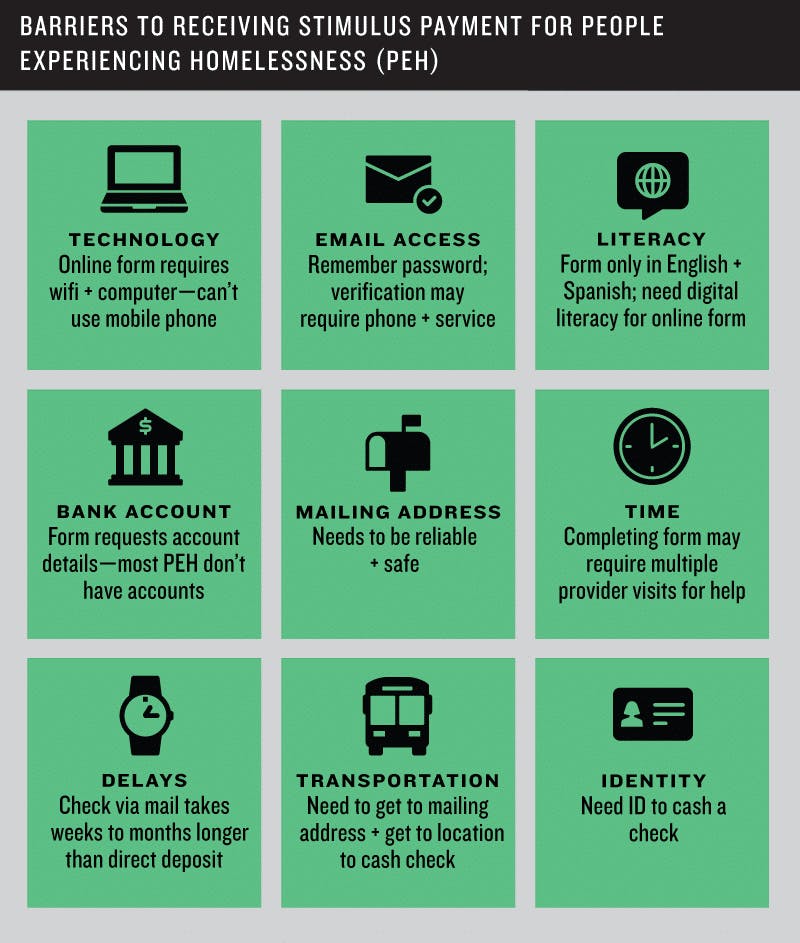How do you receive a check when you don’t have a mailing address, bank account, or ID?
Many people who are eligible for aid through the federal CARES Act in the wake of COVID-19—often those who stand to gain the most from a one-time infusion of $1,200 for essentials such as food, clothing, or medicine—have yet to receive payment. And this is because many of them are considered “Non-Filers” by the federal government and are therefore required to take additional steps to receive their stimulus payment.
“Non-Filers” in this case are people who didn’t file taxes in 2018 and 2019, didn’t receive certain federal benefits (SSI, SSDI, VA, or Railroad Retirement), and didn’t earn more than $12,200 if single/$24,400 if married and filing jointly.

Without help, the additional steps required of Non-Filers to access the stimulus funds can amount to nearly insurmountable obstacles. In the course of emergency response work, our grantee organizations, as well as other homelessness service providers, are reporting that a large number of their clients are eligible to receive stimulus funds but meet the above “Non-Filer” criteria and have not received their checks.
In response to this gap and as part of our ongoing Chronic Homelessness Initiative, Tipping Point has developed a toolkit to help people experiencing homelessness access their
In collaboration with Mother Brown’s Dining Room and Beds 4 Bayview, we are testing a simple program and a toolkit to help trusted frontline organizations guide people through the process to access this vital government aid and overcome common obstacles.
One Bayview resident we talked with had filled out all the necessary information in the online IRS form required to receive her stimulus payment, but because the website wasn’t optimized for mobile users, she couldn’t submit it from her phone. Another neighbor we met lived in a tent and received his mail at the methadone clinic across the street from the encampment where he lived. He had what he needed to fill out the form—he had committed his social security number to memory. With a few minutes of assistance, access to a computer and wifi, both community members had money on the way.
“This new program has been enthusiastically received by our neighbors experiencing homelessness,” says Maria Victoria Ahearne, an organizer with Beds 4 Bayview. “We’ve been able to place the unhoused population at the forefront and partner with the community in a way that builds trust and longevity.”
Provider partners have had the opportunity to work out the logistics of socially distanced individual consultations and gauge demand for these services. Next steps are to share learnings and resources with more non-profit and government providers across the Bay Area, so those in our community who need support the most are able to get it.
THE NUMBERS




